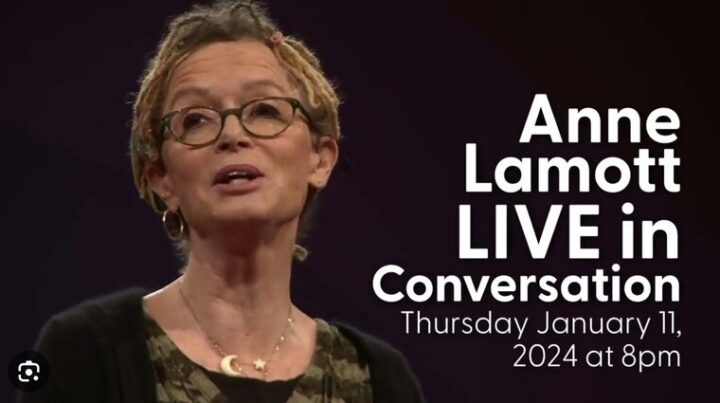Toby Mac’s “Help Is On The Way”

Toby Mac’s New Single, “Help Is On The Way” Sets an Important Standard for Christian Music
By sticking to the basics and locking in on raw Gospel sound and spirit, TobyMac’s latest single, “Help Is On The Way (Maybe Midnight),” makes a strong argument for the continuing relevance and potential of contemporary Christian music in this crazy world—especially if it could understand itself as an extension of Gospel music and not as a form of pop music that is merely “safe for the whole family.” “Help…” is a stripped-down, punchy, simple tune that is given extra resonance by the real-life struggles the artist has faced over the last year. When he sings, “I’ve seen my share of troubles,” we believe him.
Gospel music emerged as the creative outpouring of an oppressed people. Its message has long revolved around the dual proclamations of testimony (what God has done in the past,) and the encouragement of what, in faith, we believe God will do in the future. While the “Jesus Music” that eventually became modern contemporary Christian music (CCM) was certainly testimonial in nature, it did not often come from a place of oppression or persecution. In many cases, it became more propositional—designed to encourage and reinforce certain beliefs and to codify the signals of the mostly white, middle-class, Evangelical culture that supported it. Over time, in fact, it could be argued that as Evangelicalism became more closely aligned with specific political ideologies and cultural expressions, CCM music has become the soundtrack to that culture.
While Gospel music, which is an authentic musical genre, maintained credibility as a niche in the mainstream world, CCM music evolved into a wildly profitable sub-genre that rarely impacted people outside of the Evangelical bubble. As a result, it has seldom been considered “real” music by the rest of the world. Still, at its peak, the CCM ghetto managed to greenhouse some pretty impressive diamonds among the muck – including Toby’s old group DC Talk—which started as a b-level youth-group alternative to suburban rap. That group evolved, though. Toby has been holding the pole position in CCM music for twenty years now, while his bandmates Michael Tait and Kevin Max Smith have stayed relevant in their own ways as well. Tait shifted to become the lead singer of Newsboys, another CCM hit machine, while Max left the scene entirely to become a mainstream alternative artist. (Check out True Tunes’ conversation with him here.)
Throughout the 90s and 2000s, several other artists managed to break out of the CCM underground to achieve some traction in the mainstream by simply singing good music that may or may not have spiritual overtones. MxPx, Sixpence None The Richer, Switchfoot, Lifehouse, and P.O.D. all, to one extent or another, followed the U2 model. Others, like Newsboys, Toby, and A/C acts like Casting Crowns stayed put in the Christian space. But the key to real success in the Christian sphere was often to speak in reassuring Christian code to the faithful while offering a “safe alternative” to “secular music.” While that wasn’t necessarily a formula for the creation of much in the way of compelling art, it turned out to be big business and “safe” fun for millions of Christian kids and their moms—until it wasn’t. Toby has long challenged that cliché, by pushing what the CCM market would tolerate musically and by advancing a very intentional and progressive message of racial justice. He has long deserved whatever success he has had in that space. Though he may have been preaching to the choir, it turned out the sermon he was bringing was one they needed to hear.
Toby’s music has always had an intentionally blended sound, frequently leaning into messages about racial reconciliation and inclusion. His band was called Diverse City, after all. But in “Help Is On The Way,” the artist is not singing about Gospel music; he is actually singing Gospel music. The need is personal instead of propositional. Unlike much Evangelical music of the last forty years, this song sounds more like Gospel, with its willingness to lead from a place of vulnerability and weakness and its simple focus on God as a deliverer. It’s hard to relate to a helping God, after all, if you feel like you’ve got everything under control.
The tight, understated production choices and disciplined performance help present this song with zero bloat. A good portion of its running time features stripped-down drums, bass, and vocals. Acoustic piano replaces programmed synths, and choir vocals replace stacked and compressed bgvs. Beyond the subtle sonic elements (made even more evident in the powerful music video), Toby humanizes the song with its personal message of testimony and encouragement. There is no sermonizing—just a simple message to those who feel forgotten, left out, abandoned, or wounded: God sees them and is coming.
I’ve seen my share of troubles, but the Lord ain’t failed me yet
So I’m holding on to the promise, y’all
That He’s rolling up his sleeves again
The lyric in that bridge, that “He’s rolling up his sleeves again,” recalls another massively popular CCM song that achieved popularity in Gospel music as well. Rich Mullins’ “Awesome God” included the line, “When He rolls up his sleeves he ain’t just puttin’ on the ritz,” suggesting that, unlike the TV preachers Mullins was lightly parodying with the delivery of the song, the God of the Bible is active and involved in the lives of the suffering. In the 1995 True Tunes interview recently rediscovered and restored for the True Tunes Podcast, Mullins talked about that very thing. TobyMac accomplishes a similarly transcendent thing with “Help Is On The Way.”
At just 3 minutes, the track may be begging for some remixes, which it will undoubtedly receive. “Help Is On The Way” is a Master’s Class in songwriting and production, and once again, it shows that at 56 years old, TobyMac remains one of the essential voices in Christian music. Though it has been true of several of his songs over the years, “Help Is On The Way” belongs on mainstream radio, and with its Gospel inflections, maybe it has a chance there. If more CCM music sounded as real, purposeful, and authentic as this, it would be growing as a legitimate extension of Gospel music and not merely seen as an alternative to “secular” pop. By leading from his own pain and need, Toby McKeehan puts himself in the strong tradition of Gospel, and the world needs that message now more than ever.




